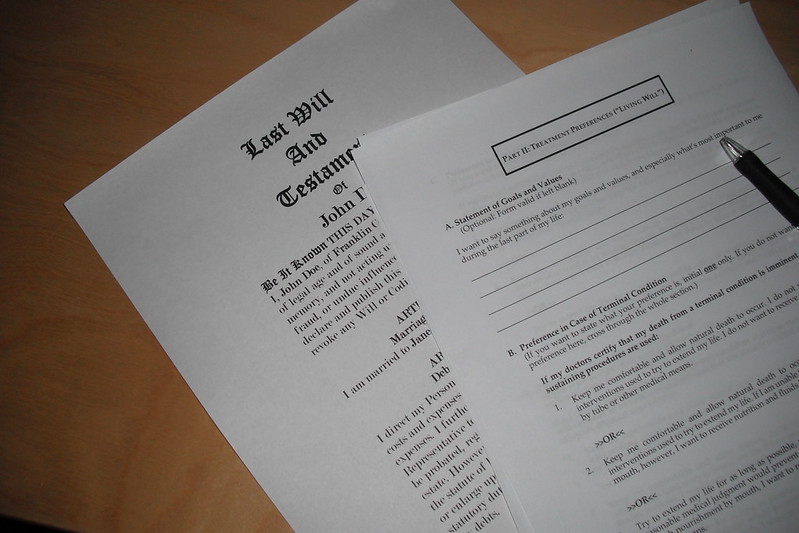with Christine Smyth
Wills – QLS advocacy on the world stage
Last year, Re Nichol [2017] QSC 220 captured legal and media attention because of its modern circumstance.
The Supreme Court admitted to probate a will in the form of an unsent text message, and was able to do so under the dispensing provision – section 18 Succession Act 1981.
Our dispensing powers have now hit the international stage with the Law Commission of England and Wales (LCEW) undertaking a review of a broad range of issues around willmaking with a special focus on a proposal to introduce a similar provision there. The dispensing powers are reported to be one of the most “hotly debated topics to emerge from [their] consultation”.1
As a result, the LCEW recently wrote to QLS seeking its views on the operation of the dispensing provisions in Queensland. The STEP Journal reports2 that the assessments from those consultations will inform “analysis
of whether worries about a flood of litigation are well founded”.3
Another area under review by the LCEW is electronic wills. Readers will recall that in my capacity as deputy president I convened a Wills Register Working Group (WRWG) to investigate the viability of an electronic wills register in Queensland. The WRWG delivered its report to QLS last year, and in my capacity as president I provided the report to the Attorney-General for her consideration.
In a watch-this-space moment, the LCEW has also investigated the “possibility of wills being executed and stored electronically”. 4 It has advanced to the stage of proposing to the Lord Chancellor the establishment of a “power to make provision for electronic will-making in secondary legislation, but only when there is sufficient protection for testators against fraud and influence”. 5
Life events – Review of Births, Deaths and Marriages Registration Act 2003
As part of its ongoing review of life event certificates,6 the State Government is considering the inclusion of a non-specific category of sex on Queensland birth certificates and amendment to the Births, Deaths and Marriages Registration Act 2003 (Qld) to permit same-sex parents to choose how they are recorded on the birth or adoption register.
The State of Queensland (Department of Justice and Attorney-General) has published its ‘Registering life events: Recognising sex and gender diversity and same-sex families’ report, 7 and the QLS advocacy team, through the assistance of QLS Family Law and Health and Disability Law Committees, provided a submission on the QLS position on review of these descriptors. Consultation is ongoing. 8
Capacity – ‘A delusion is something that people believe in despite a total lack of evidence.’ 9
Case law is also modernising the law of wills, with Carr v Homersham [2018] NSWCA 65 reviewing the test for capacity.
It had a number of sensational elements, including a dispute between the testator and her niece in regard to a discussion they had over euthanasia, as well as the testator having mild dementia and her ultimate decision to leave her substantial estate to her carer, excluding her niece (the challenger) and the primary beneficiary of a prior will.
The niece challenged the grant of probate of the 2004 will, seeking to propound the 2001 will. She was successful in the first instance, however the primary decision was overturned on appeal. While a majority decision, there were three separate reasons because the court disagreed on the conclusions of the primary judge: 10 “[T]he whole case turned upon whether the primary reason for excluding her niece was a false belief as to the niece’s conduct.” 11
The analysis considered the elements of testamentary capacity with a particular focus on the element of insane
delusions as a factor, giving it a modern makeover. The court finessed the Banks v Goodfellow test, observing that it has three affirmative elements:
[5]“1. the capacity to understand the nature of the act of making a will and its effects; 2. understanding the extent of the property the subject of the will, and 3. The capacity to comprehend moral claims of potential beneficiaries.”
While qualifying that the negative elements: [6]“The negative elements, commonly identified in archaic language, do no more than identify the conditions which might be understood to interfere with full testamentary capacity. They include ‘disorders of the mind’ and ‘insane delusions’. Too much attention should not be paid to the precise language of the negative elements; importantly, although they tend to be expressed in general terms, they are only relevant to the extent that they are shown to interfere with the testator’s normal capacity for decision-making.”
Further identifying at [14] that “A false belief, by itself, is not sufficient to warrant a conclusion that the testator lacked
testamentary capacity. The case-law affirms that the false belief must be in the nature of a ‘delusion’ and be of a kind to indicate unsoundness of mind… The scope for difference of opinion about the character of other people, in particular, is so wide that great care needs to be exercised before concluding that a harsh or unreasonable judgment of another person amounts to a delusion.” 12
Christine Smyth is immediate past president of Queensland Law Society, and a QLS accredited specialist (succession law). She is a member of the QLS Council Executive, QLS Council, QLS Specialist Accreditation Board, the Proctor editorial committee, STEP, and an associate member of the Tax Institute.
Notes
1 See page 65 of the STEP Journal, March 2018,
‘Time Will Tell’.
2 March edition, volume 26 Issue 2, pages 64 to 65.
3 Ibid, 65.
4 Ibid, 65.
5 Ibid, 65.
6 justice.qld.gov.au/corporate/communityconsultation/community-consultation-activities/
current-activities/review-of-births-deaths-andmarriages-registration-act-2003.
7 publications.qld.gov.au/dataset/review-of-thebirths-deaths-and-marriages-registration-act2003-qld/resource/1e272ba5-396a-4a19-a99225697393fae2.
8 Thanks to QLS policy lawyer Vanessa Krulin, Succession Law Committee chair Gary Lanham and Wills Register Working Group chair Bryan
Mitchel for their assistance in the provision of information and advice for this column.
9 Richard Dawkins.
10 At [128].
11 At [13].
12 Citing in Re Estate of Griffith (dec’d); Easter v Griffith[7] by Gleeson CJ, with whom Handley JA agreed.

